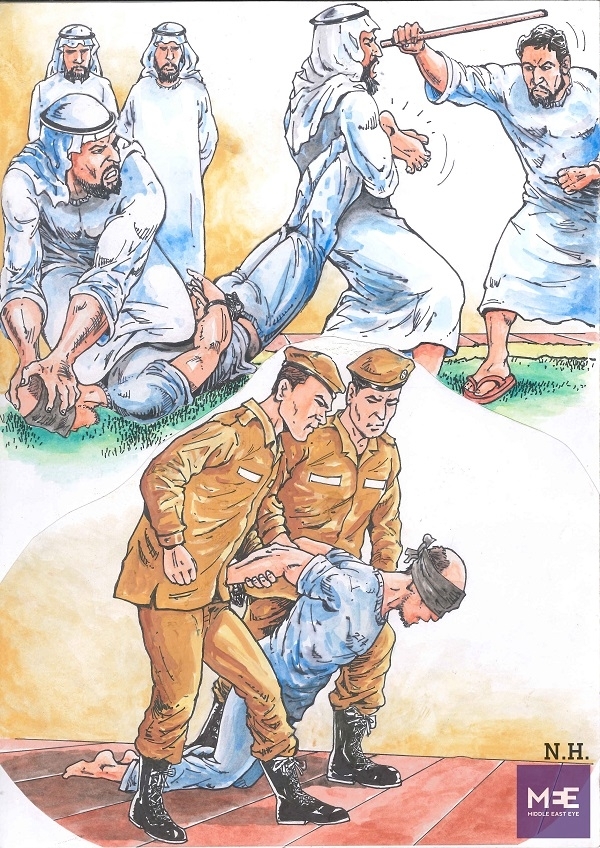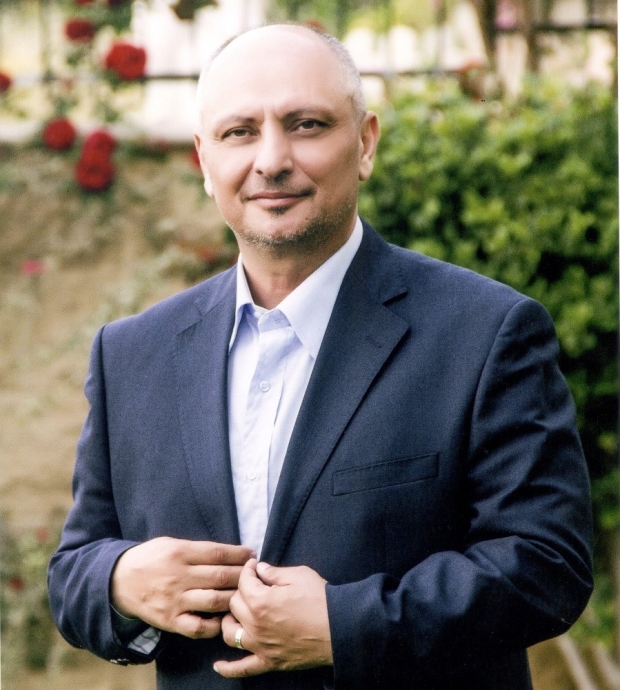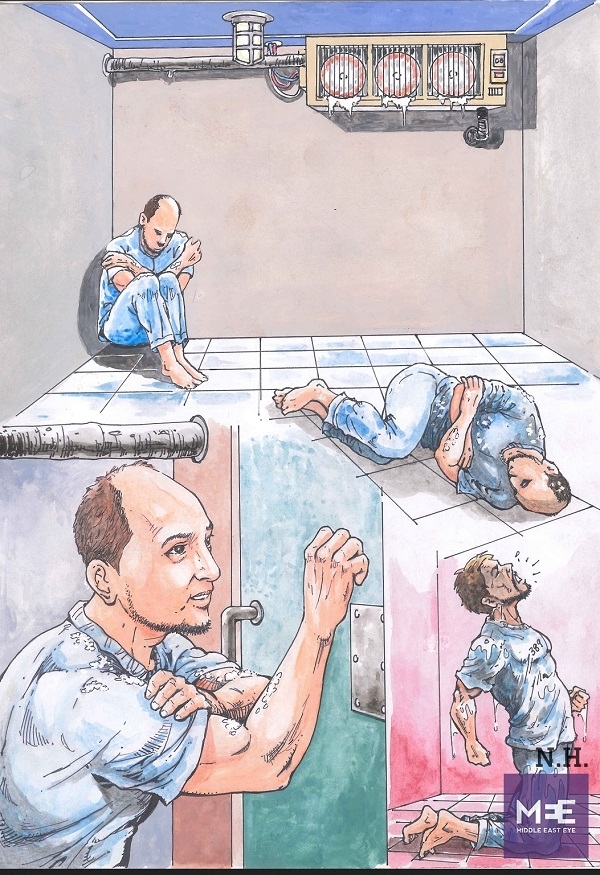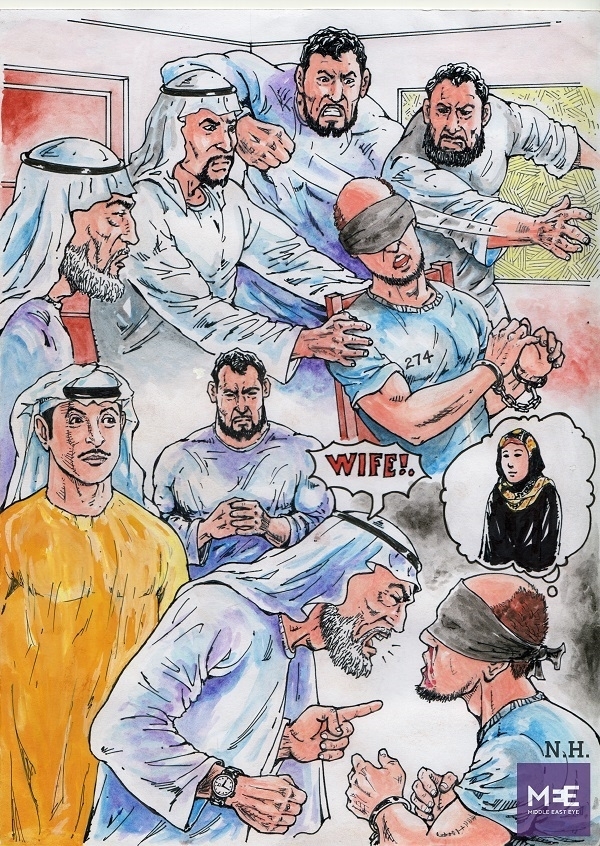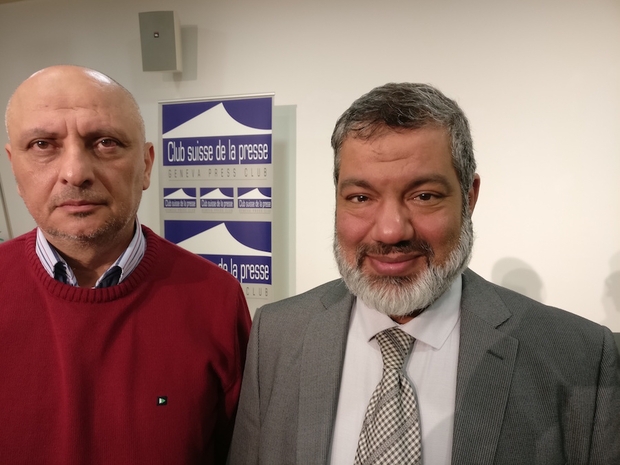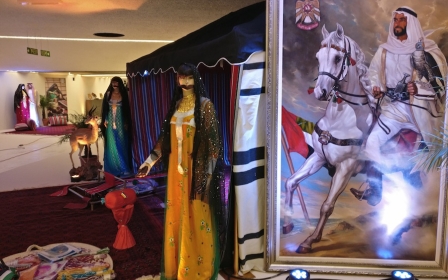Businessman victim of torture in UAE fights for justice
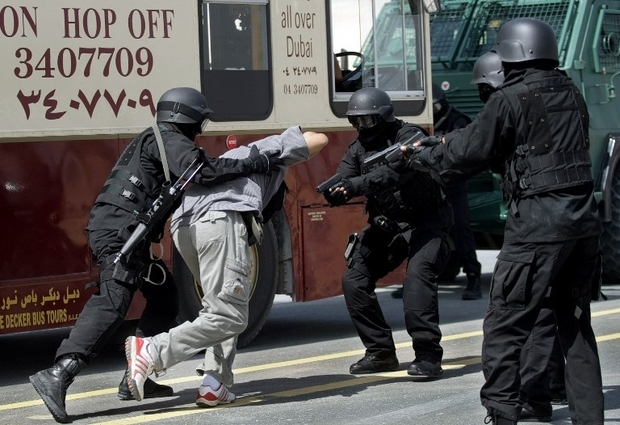
GENEVA, Switzerland - In the last two decades, the United Arab Emirates has come to symbolise a model of progress and modernity in the Gulf region, with its glittering skyscrapers and green city projects.
The country’s rulers have spared no effort in promoting a model of openness and integration while publicly renouncing all forms of extremism and embracing diversity.
These were just the qualities that attracted Naji Hamdan, a naturalised American of Lebanese origin, who in 2006 decided to move from the USA to the Emirates in search of new business opportunities. Additionally, he wanted a more stable environment for his family, whose life had totally changed in the aftermath of the 1998 al-Qaeda bombings of the US embassies in East Africa.
Life in the USA
Hamdan had been living in the US since 1984, becoming an aeronautical engineer and living the normal life of a middle-class American citizen.
A devout Muslim, he was also active in the Islamic community of his town and helped found the Islamic Center of Hawthorne, in Southern California.
Osama Bin Laden was a name that through no action on my part would destroy the busy but contented life that my family was enjoying as new American citizens
- Naji Hamdan
Hamdan's life took a sudden turn in the aftermath of the al-Qaeda bombings of US embassies in Kenya and Tanzania in 1998, which the US accused Osama Bin Laden of being responsible for. Bin Laden was known later as the mastermind behind the 9/11 attacks.
“Osama bin Laden was a name that through no action on my part would destroy the busy but contented life that my family was enjoying as new American citizens,” Hamdan says.
In January 2000, the FBI suddenly appeared at Hamdan's house and interrogated him in front of his family. His business and family life were scrutinised in search of a connection between Hamdan and Bin Laden. The officers could not find any evidence and their visit ended in a handshake.
“It was over as abruptly as it started. They stopped, smiles all round, offered me their card as if I was a prospective business customer and left.”
Safe in his knowledge that he had done nothing wrong and that he loved his adopted country, Hamdan patiently waited for the atmosphere of suspicion towards him, and the Muslim community as a whole, to fade away.
“I had been in the US for 15 years. I was a proud US citizen. I had never even had a traffic violation.”
Yet visits by the FBI continued. In 2004, the fiscal authorities of the Internal Revenue Service raided Hamdan’s business. Again, there was no evidence of Hamdan's involvement in any terror link. But the harassment continued in different forms.
I was a proud US citizen. I had never even had a traffic violation
- Naji Hamdan
“I was being followed all the time and I was pretty sure my phone was tapped,” he recalls. Each time Hamdan had to travel for business, interviews at the airport became longer and on several occasions he was made to miss his flights.
The business started to suffer, he was emotionally exhausted and he started avoiding the Islamic centre. The family felt increasingly isolated. At times his wife and children were harassed and singled out by neighbours and passers-by.
Prison of horrors
In 2006, Hamdan decided to leave in search of relief from the oppressive atmosphere he was living in.
”I was relieved to be leaving the US behind. At least for now it was not the same country that I had pledged allegiance to 10 years previously, but I still hoped to return. At no stage did I consider myself as anything other than American.”
At no stage did I consider myself as anything other than American
- Naji Hamdan
The UAE looked like a very promising alternative for him and his family. “Little I knew,” says Hamdan, 12 years later.
In August 2008, Hamdan was called into the US embassy in Abu Dhabi for an interrogation with the FBI. Two weeks later, Emirati officers showed up at his apartment, handcuffed and blindfolded him and drove him away to a secret location.
“My bones started to hurt. My hands and feet turned blue as the blood supply retreated to safer climes. The cold was dry and breathing in became painful deep in my chest. My teeth started to ache. After 24 hours in the refrigerator, I would have welcomed death.”
The worst form of torture
The electric chair was one of the worst forms of torture, says Hamdan, although they never used it to electrocute him.
“They had worked out a more terrible use than that. It was constructed like a poorly contoured park bench. With my arms strapped tightly down, the contours of the bench were such that my spine was pushed in and my stomach up. So effectively I was hanging from my mid-back with my lumbar spine compressed and my feet dangling unsupported.”
Hamdan says he was left sitting in that position for hours, while being beaten and punched in the head at the same time. “When I was released, I was temporarily paralysed and the numbness would be replaced by an excruciating pins and needles sensation [in the spine].”
Hamdan spent three months in a state security site. He later came to know that there is a security prison in Abu Dhabi. He speculates that he might have been held there.
“Later doctors in Lebanon were to confirm a ruptured liver, severely bruised kidneys and a rupture to the fundus, the outer layer of the stomach, as well as displaced discs in my lumbar spine,” he says. “It was a wonder I survived and I was lucky not to be in a wheelchair.”
“If they had brought a dead body and asked me to sign that I killed it, I would have signed with no hesitation and written the scenario of how I killed it, even if it meant the death penalty.”
Hamdan was then transferred to the Al-Wathba General Prison in Abu Dhabi and attended his first hearing nine months later.
A case of rendition?
Based on Hamdan's signed confession and after five hearings in front of Abu Dhabi’s Federal Supreme Court, at the end of 2009 he was convicted of "terrorism charges" and sentenced to 18 months in prison, which he had already completed by that time. Therefore, he was deported to Lebanon.
But according to Hamdan, in the course of the trial, he stood accused of belonging in turn to six different terrorist groups including al-Qaeda, Hezbollah, Ansar al-Sunna and other organisations. “It was absolutely ridiculous simply because these groups oppose each other on the ground.”
My bones started to hurt. My hands and feet turned blue as the blood supply retreated to safer climes. The cold was dry and breathing in became painful deep in my chest
- Naji Hamdan
“I will never understand why they set their mind on me. But I came to believe mine could have been a case of rendition,” Hamdan says.
In November 2008, Hamdan's family took his case to the American Civil Liberties Union (ACLU), which filed a lawsuit in Washington DC. Ahilan Arulanantham, an ACLU lawyer who represented Hamdan at the time, told ABC News that:
"There is strong evidence that U.S. officials not only sought Hamdan's arrest by a foreign government, but apparently participated in his interrogation and torture in violation of federal criminal law."
According to media reports, the FBI denied the claims and issued a statement in 2009 saying that the FBI does not ask other countries to detain people on its behalf.
The UAE Embassy in Washington declined to comment at the time on the case, citing that it was a "police/security" matter.
The judge dismissed the case in August 2009 because of a “lack of jurisdiction”. But Hamdan's story was brought to public attention.
Jennie Pasquarella, an attorney with the ACLU of Southern California, said in a statement that Hamdan’s arrest was part of the US’s controversial “proxy detention program,” where the US has subjected hundreds of people to “indefinite detention, interrogation, and torture without accountability”.
After his release, Hamdan brought his case to the attention of many officials including congressmen, former US President Barack Obama and former secretary of state Hillary Clinton.
I was lucky not to be in a wheelchair
- Naji Hamdan
“I never got any answer to my letters. I never got an explanation neither from the US authorities nor from the UAE," Hamdan says.
The US State Department media office in the UAE did not respond to MEE's request for comment on the US government's involvement in Hamdan's case.
Prosecution push
Today, along with other victims, Hamdan has set up the Association for Victims of Torture in the UAE (AVT), which aims to prosecute UAE officials involved in cases of torture.
“We are working on its administrative and legal matters for now, but as soon as we’ll complete that, we have plans to collectively open a case in Switzerland against UAE officials.”
If they had brought a dead body and asked me to sign that I killed it, I would have signed with no hesitation
- Naji Hamdan
Under the UN Convention Against Torture, a state which is a signatory to the convention has an obligation to investigate and prosecute cases of torture if the alleged offender is present in any territory within its jurisdiction.
Hamdan has filed a case also in Lebanon against four UAE officials, who he says were complicit in his case.
“They all knew about the torture I went through,” says Hamdan. Under international law, the official may be questioned and arrested if they enter Lebanese borders.
The UAE mission to the United Nations in Geneva did not respond to MEE's request for comment on Hamdan's claims.
UAE under international scrutiny
The UAE’s human rights record has come under closer scrutiny by the international community and human rights organisations, as an increasing number of cases of incommunicado detention and torture have surfaced over recent years.
“The human rights situation in the UAE has significantly deteriorated since the last UN review of the country’s record in 2013 and more in general since the Arab uprisings that started in 2011,” says Julia Legner, regional legal officer for the Gulf region at Al-Karama, a Swiss-based human rights organisation.
Legner says reprisals against human rights defenders and systematic repression of political opponents, arbitrary detention without trial or unfair judicial proceedings, as well as a lack of judicial control over the intelligence services and impunity of those responsible for serious human rights violations, are some of the major issues of concern.
The torturers take away your character, stripping away a lifetime of the foundations of who you are until only your survival instinct holds you together and the truth dies
- Naji Hamdan
In December, some Emirati officials stormed out of a UN organised preparatory session leading up to the Universal Periodic Review (UPR) with human rights and civil society groups, after they were presented with evidence of alleged abuses happening in the country.
In a report released in January, the UN rebuked the United Arab Emirates over its human rights records, citing a vague "2014 counter-terrorism law" that attracts the death penalty, the tightening of censorship and the detention of human rights activists.
In its 2017-2018 report on the UAE, Amnesty International said reports of torture and other ill-treatment remained common.
“No independent investigations were carried out into detainees’ allegations of torture,” the document stated.
In Beirut with his kids and his wife, Hamdan is now working on a book containing drawings and poignant accounts telling his story of torture.
“In the movies, the hero survives torture intact. He is always stronger than the torturer and comes out even stronger in character. It is not like that. The torturers take away your character, stripping away a lifetime of the foundations of who you are until only your survival instinct holds you together and the truth dies.”the foundations of who you are until only your survival instinct holds you together and the truth dies.”
Middle East Eye propose une couverture et une analyse indépendantes et incomparables du Moyen-Orient, de l’Afrique du Nord et d’autres régions du monde. Pour en savoir plus sur la reprise de ce contenu et les frais qui s’appliquent, veuillez remplir ce formulaire [en anglais]. Pour en savoir plus sur MEE, cliquez ici [en anglais].



